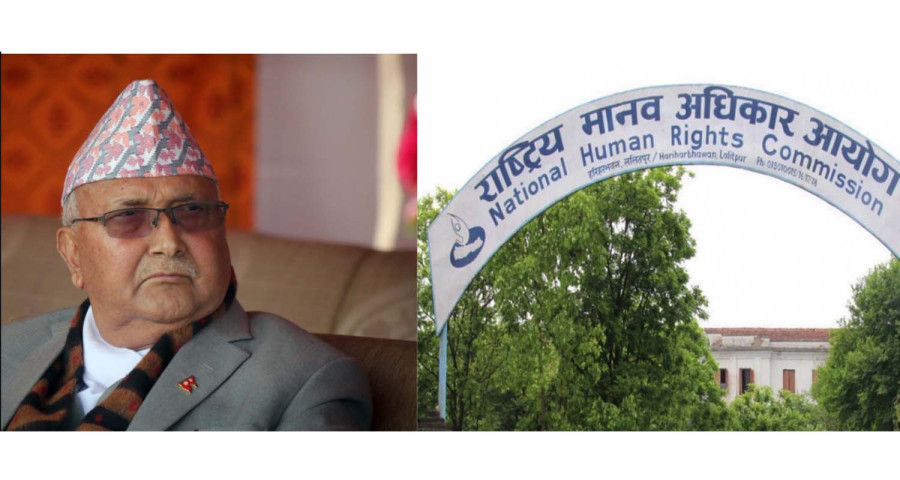Editorial
Executive excess
Why have a constitutional rights watchdog if it is not allowed to carry out even its most basic duties?
Prime Minister KP Sharma Oli manages to address various gatherings, inaugurations and other activities across Nepal on a regular basis. He is known not only for active participation in such functions but also for giving hours-long speeches, on any subject under the sun, while addressing them. However, he “couldn’t manage time” to attend an event held to commemorate the 25th anniversary of a constitutional body within the capital city on Tuesday. The National Human Rights Commission had invited the prime minister as the chief guest at the commission’s silver jubilee but the Prime Minister’s Office informed the organisers that he was unable to attend “due to his busy schedule”. The office didn’t even send an official to represent the government.
The context of the prime minister’s snubbing of the event is telling. Oli was apparently irked by the NHRC’s statement issued on Monday expressing serious concern about his remarks asking his party cadres “to take Kathmandu under their control” on Republic Day (on Thursday), when pro-monarchy forces planned a protest demanding reinstatement of monarchy. Despite elevating it to the status of a constitutional body in 2007, Nepal’s ruling class has often appeared displeased with the rights watchdog’s activities and statements critical of them. Historically, the trend of the government agencies ignoring NHRC’s recommendations to take action against the rights violators has been very low—no matter which political party is at the helm.
Successive governments’ dissatisfaction is somehow linked to the tussle between the efforts to keep the commission an autonomous body and the ruling leaders’ attempt to make it work as an organisation loyal to them. Nepali politicians’ tendency of chipping away at the influence and independence of key constitutional bodies such as the Commission for the Investigation of Abuse of Authority and the Election Commission has emerged as a concern. It begins with the appointment of office bearers in these commissions. As they are picked by the Constitutional Council—a body composed of top politicians from ruling as well as the main opposition party—it is an open secret that the positions of heads and members of these crucial organisations are shared based on political dealings.
The constitutional bodies have a crucial role of maintaining checks and balances in the functioning of a political system like ours. Such institutions strengthen the democratic system by making executive agencies accountable and transparent. That eventually helps the system gain public legitimacy and trust. This is one of the biggest deficits in Nepal’s present-day politics. Subservient agencies can’t fulfill this crucial duty. Autonomous and independent functioning becomes more important in the case of the NHRC given its need to comply with the Paris Principles relating to the status of national institutions for the promotion and protection of human rights.
Based on the same, it has kept the “A” status by the Global Alliance of National Human Rights Institutions. But due to the government’s reluctance in allowing it to function autonomously and some questionable acts by the executive, the NHRC’s global ‘A’ status has been frequently questioned. The commission fought hard to retain its status, and succeeded in doing so only in March. The country loses an important soft power in the international forums if the national watchdog can’t retain the status. After all, what is the relevance of a rights watchdog if it can’t even ask a leader to restrain from giving provocative remarks amid a volatile political situation?




 9.33°C Kathmandu
9.33°C Kathmandu














